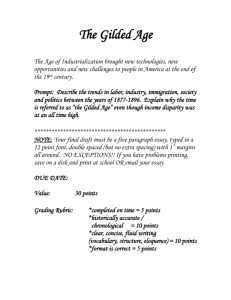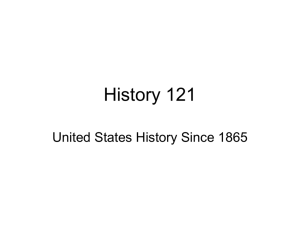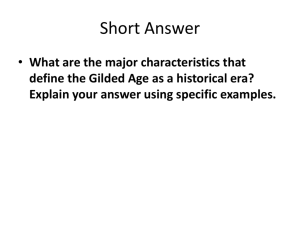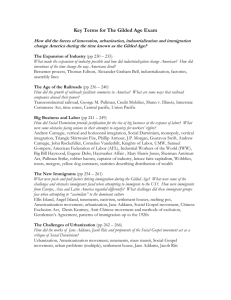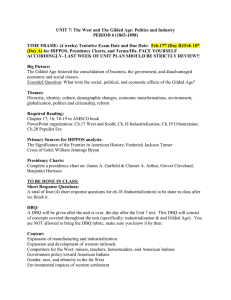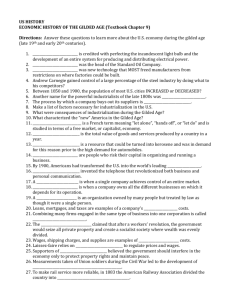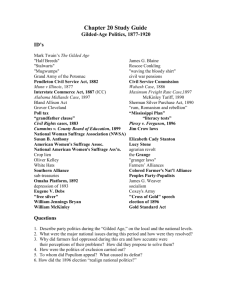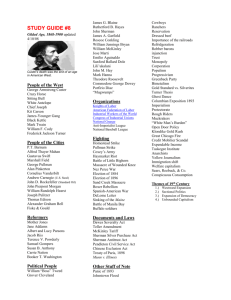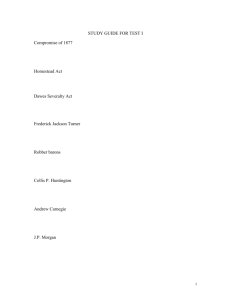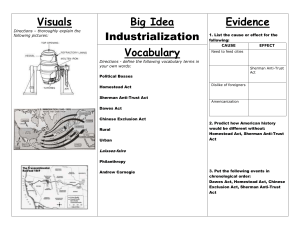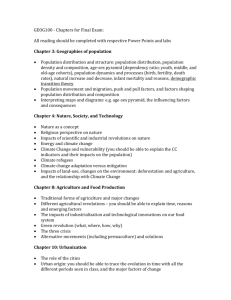Period 6 (1865
advertisement
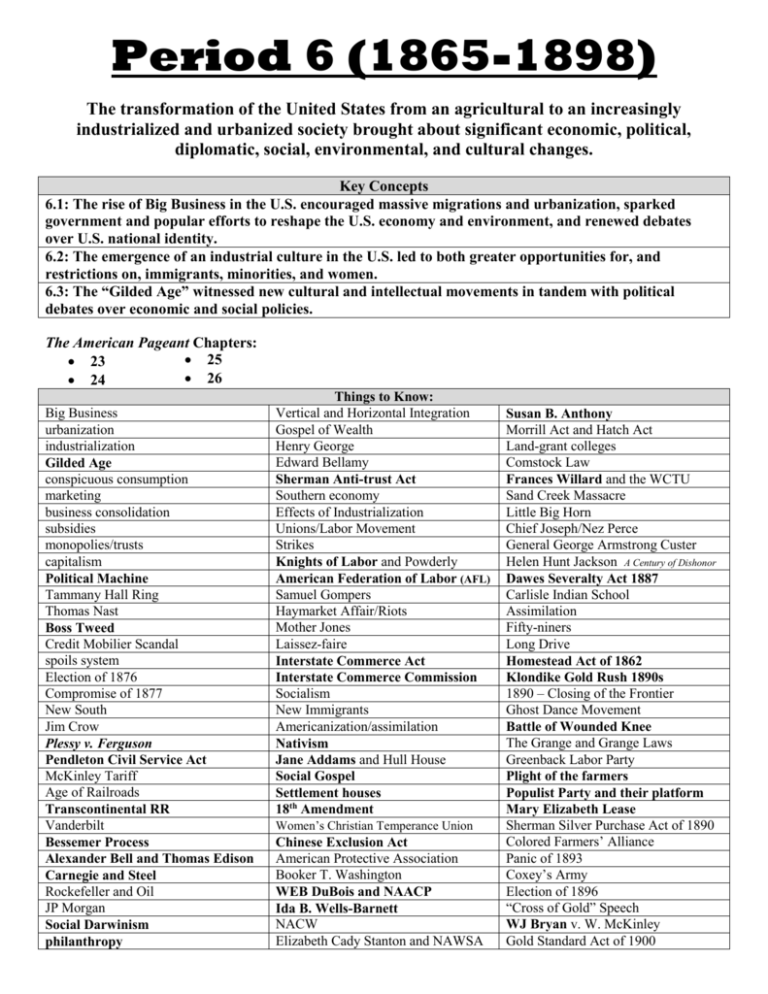
Period 6 (1865-1898) The transformation of the United States from an agricultural to an increasingly industrialized and urbanized society brought about significant economic, political, diplomatic, social, environmental, and cultural changes. Key Concepts 6.1: The rise of Big Business in the U.S. encouraged massive migrations and urbanization, sparked government and popular efforts to reshape the U.S. economy and environment, and renewed debates over U.S. national identity. 6.2: The emergence of an industrial culture in the U.S. led to both greater opportunities for, and restrictions on, immigrants, minorities, and women. 6.3: The “Gilded Age” witnessed new cultural and intellectual movements in tandem with political debates over economic and social policies. The American Pageant Chapters: 25 23 26 24 Big Business urbanization industrialization Gilded Age conspicuous consumption marketing business consolidation subsidies monopolies/trusts capitalism Political Machine Tammany Hall Ring Thomas Nast Boss Tweed Credit Mobilier Scandal spoils system Election of 1876 Compromise of 1877 New South Jim Crow Plessy v. Ferguson Pendleton Civil Service Act McKinley Tariff Age of Railroads Transcontinental RR Vanderbilt Bessemer Process Alexander Bell and Thomas Edison Carnegie and Steel Rockefeller and Oil JP Morgan Social Darwinism philanthropy Things to Know: Vertical and Horizontal Integration Gospel of Wealth Henry George Edward Bellamy Sherman Anti-trust Act Southern economy Effects of Industrialization Unions/Labor Movement Strikes Knights of Labor and Powderly American Federation of Labor (AFL) Samuel Gompers Haymarket Affair/Riots Mother Jones Laissez-faire Interstate Commerce Act Interstate Commerce Commission Socialism New Immigrants Americanization/assimilation Nativism Jane Addams and Hull House Social Gospel Settlement houses 18th Amendment Women’s Christian Temperance Union Chinese Exclusion Act American Protective Association Booker T. Washington WEB DuBois and NAACP Ida B. Wells-Barnett NACW Elizabeth Cady Stanton and NAWSA Susan B. Anthony Morrill Act and Hatch Act Land-grant colleges Comstock Law Frances Willard and the WCTU Sand Creek Massacre Little Big Horn Chief Joseph/Nez Perce General George Armstrong Custer Helen Hunt Jackson A Century of Dishonor Dawes Severalty Act 1887 Carlisle Indian School Assimilation Fifty-niners Long Drive Homestead Act of 1862 Klondike Gold Rush 1890s 1890 – Closing of the Frontier Ghost Dance Movement Battle of Wounded Knee The Grange and Grange Laws Greenback Labor Party Plight of the farmers Populist Party and their platform Mary Elizabeth Lease Sherman Silver Purchase Act of 1890 Colored Farmers’ Alliance Panic of 1893 Coxey’s Army Election of 1896 “Cross of Gold” Speech WJ Bryan v. W. McKinley Gold Standard Act of 1900
